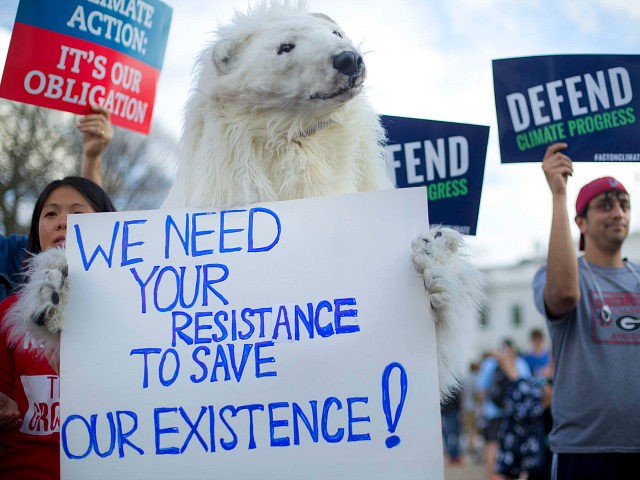Four in 10 Americans — or 39 percent — think the odds for human extinction because of climate change or global warming are 50 percent or more. But the majority of Americans, or 58 percent, think the odds of human extinction because of climate change is less than 50 percent, revealing that climate change is not a topic of universal agreement in the United States.
This divide is revealed in a Yale University report titled “Climate Change in the American Mind.”
“More than half of Americans (58%) believe climate change is mostly human caused,” the Yale report states. “That’s the highest level measured since our surveys began in 2008.
“By contrast, only 30% say it is due mostly to natural changes in the environment, matching the lowest level measured in our November 2016 survey,” Yale’s report states.
Most people agree that the Earth’s climate is always changing and has done so since the beginning of time. But according to the federal National Oceanic and Atmospheric Administration (NOAA), the hottest weather on Earth happened millions of years before man existed.
Our planet probably experienced its hottest temperatures in its earliest days, when it was still colliding with other rocky debris (planetesimals) careening around the solar system. The heat of these collisions would have kept Earth molten, with top-of-the-atmosphere temperatures upward of 3,600° Fahrenheit.
Even after those first scorching millennia, however, the planet has sometimes been much warmer than it is now. One of the warmest times was during the geologic period known as the Neoproterozoic, between 600 and 800 million years ago. Another “warm age” is a period geologists call the Paleocene-Eocene Thermal Maximum, which occurred about 56 million years ago.
Some of the key findings of the Yale report include:
• Six in ten Americans (59%) think global warming is affecting weather in the United States, and half think weather is being affected “a lot” (25%) or “some” (27%).
• About one in three Americans (35%) think people in the U.S. are being harmed by global warming “right now.”
• Most Americans think global warming is a relatively distant threat – they are most likely to think that it will harm future generations of people (71%), plant and animal species (71%), the Earth (70%), people in developing countries (62%), or the world’s poor (62%). They are less likely to think it will harm people in the U.S. (58%), their own grandchildren (56%) or children (50%), people in their community (48%), their family (47%), themselves (43%), or members of their extended family living outside the U.S. (41%).
• Four in ten Americans (40%) say they have personally experienced the effects of global warming, six in ten (60%) say they have not.
• Six in ten Americans (63%) say the issue of global warming is either “extremely” (10%), “very” (16%), or “somewhat” (38%) important to them personally. Four in ten (37%) say it is either “not too” (22%) or “not at all” (15%) important personally.

COMMENTS
Please let us know if you're having issues with commenting.